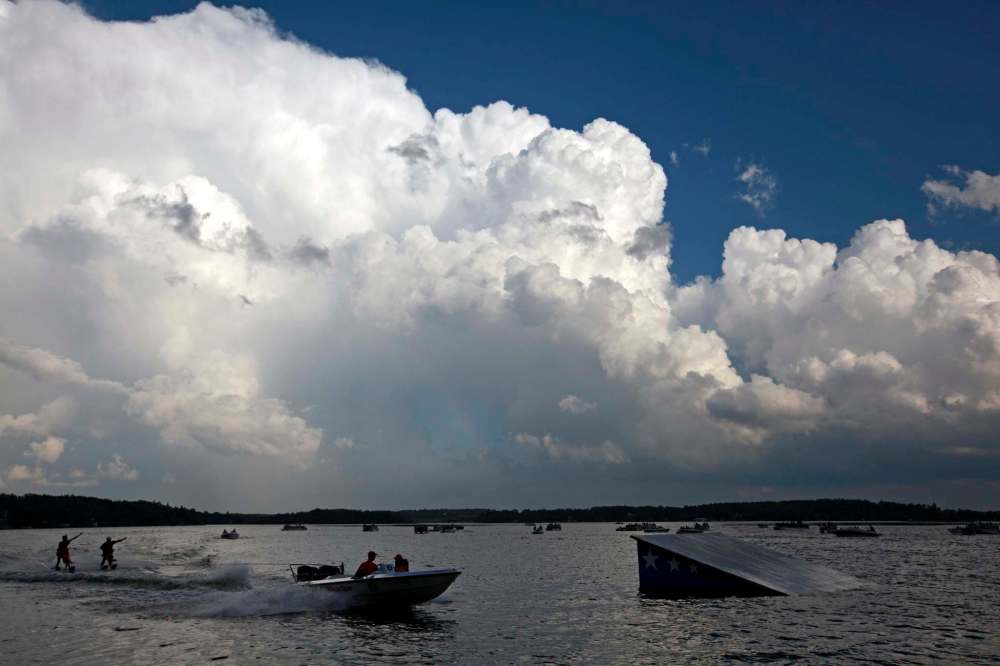Metigoshe cottagers now have to tell border officials every time they go boating
Advertisement
Read this article for free:
or
Already have an account? Log in here »
To continue reading, please subscribe:
Monthly Digital Subscription
$0 for the first 4 weeks*
- Enjoy unlimited reading on winnipegfreepress.com
- Read the E-Edition, our digital replica newspaper
- Access News Break, our award-winning app
- Play interactive puzzles
*No charge for 4 weeks then price increases to the regular rate of $19.00 plus GST every four weeks. Offer available to new and qualified returning subscribers only. Cancel any time.
Monthly Digital Subscription
$4.75/week*
- Enjoy unlimited reading on winnipegfreepress.com
- Read the E-Edition, our digital replica newspaper
- Access News Break, our award-winning app
- Play interactive puzzles
*Billed as $19 plus GST every four weeks. Cancel any time.
To continue reading, please subscribe:
Add Free Press access to your Brandon Sun subscription for only an additional
$1 for the first 4 weeks*
*Your next subscription payment will increase by $1.00 and you will be charged $16.99 plus GST for four weeks. After four weeks, your payment will increase to $23.99 plus GST every four weeks.
Read unlimited articles for free today:
or
Already have an account? Log in here »
Hey there, time traveller!
This article was published 16/06/2016 (3444 days ago), so information in it may no longer be current.
A border security crackdown means Manitoba cottagers on Lake Metigoshe now have to report to the Canada Border Services Agency every time they use their boats.
Less than 10 per cent of Lake Metigoshe is on the Canadian side, and cottagers can’t go boating without crossing into international waters, said Noreen Johnston, a Lake Metigoshe resident.
“I can see the border from my dock. I can throw a stone at it,” she said.

So they have to report to customs on a special phone each time before they return to their cottage or residence.
Metigoshe is just west of Turtle Mountain Provincial Park, in southwestern Manitoba.
In the past, Manitoba cottagers were require to report only if they docked on the American side. In that case, they would report to the U.S. authorities when docking, and then report to Canadian authorities upon return. There is a direct phone set up at a local beach on Canada’s side where boaters call to the Canada Border Services Agency. They can call customs by cellphone from the water but reception is poor and roaming charges are horrendous.
Now they have to report to the Canada Border Services Agency whenever they cross the imaginary line on the water. Johnston said she knows of at least one camera positioned along the border for enforcement. Violation is a $1,000 fine and/or seizure.
Cottagers were informed of the change by letter from the Canada Border Services Agency dated April 1, 2016.
“Some people said, ‘I’ve got four kids. We go tubing and water skiing. We could cross the border 20 times and have to report each time,'” said Johnston.
Fortunately, the border law is not that draconian. Canada Border Services Agency has informed cottagers those families would only have to report once, after they finish tubing.
However, the law is still strict. Boaters cannot return to their home docks without first reporting to Canada Border Services Agency.
“For us to have to call every time we get into our boat is a bit of a thorn,” said Johnston, secretary-treasurer of the Lake Metigoshe Improvement Association.
Even the public boat launch is virtually on the boundary. Once you deposit your boat in the water, you’re in the United States.
There are 220 cottages or permanent residences on the Manitoba side of Lake Metigoshe.
A Canada Border Services Agency spokeswoman said the regulations are not new.
“The requirement to report by phone has always been there,” said Jacqueline Callin. However, it wasn’t enforced as it is now. The renewed enforcement is to bring water bodies like Lake Metigoshe into line with the national border security program, she said.
The first time Johnston called the direct phone line to Canada Border Services Agency, the conversation took 18 minutes. The CBSA required her phone number, boat registration number, the make and model of their boat, the colour, dimensions, full names of occupants, passport numbers, passport expiry dates, etc. She has since learned a person can register online to save the lengthy initial call.
Subsequent calls are shorter. However, it can depend on the customs officer you get.
“They ask all the same questions, as if you’re crossing the border in a car,” Johnston said. “You’ll have some officers who are like, ‘OK. Thanks.’ And the next guy gives you 20 questions.”
There are other differences with owning a cottage on an international lake like Metigoshe, which is good-sized with a circumference of about 120 kilometres.
“We have people here who actually pay U.S. taxes because the border runs right across the front of their property,” Johnston said.
“We used to have a baseball diamond and we’d play ball every weekend. The border was the home run line. You’d have to jump the fence to get the ball and jump back in. It was no big deal,” she said.
The Metigoshe cottagers have contacted their local MP, Larry Maguire (Brandon-Souris). “I think it’s one of the laws… that doesn’t apply to the situation that we’re faced with,” Maguire said.
A private member’s bill, drafted by Conservative MP Gord Brown (Leeds-Grenville-Thousand Islands and Rideau Lakes) is trying to change the law back to the way it was.
The bill also covers Americans who cross the international waters on the St. Lawrence River, and who have complained of the same thing ie., having to report to U.S. Customs even when they haven’t docked on the Canadian side.
The private member’s bill can’t be debated until the fall.
bill.redekop@freepress.mb.ca

